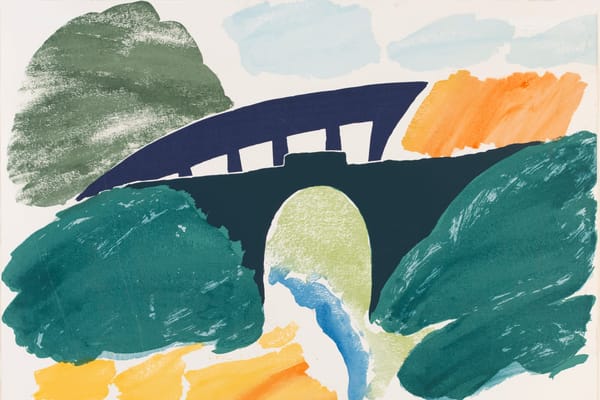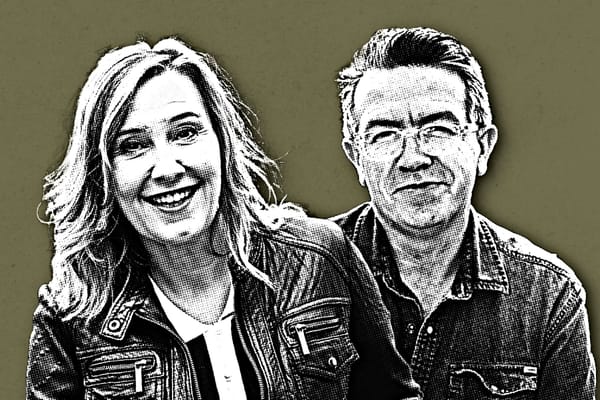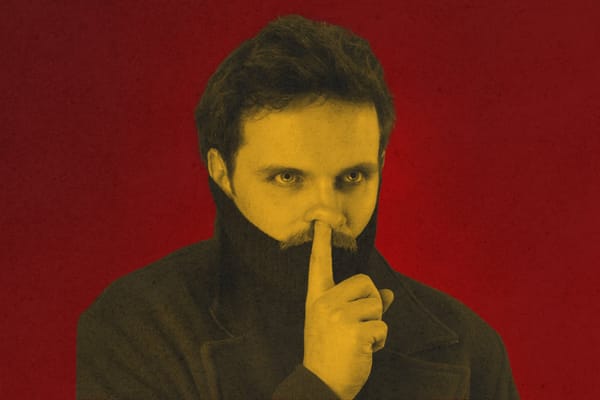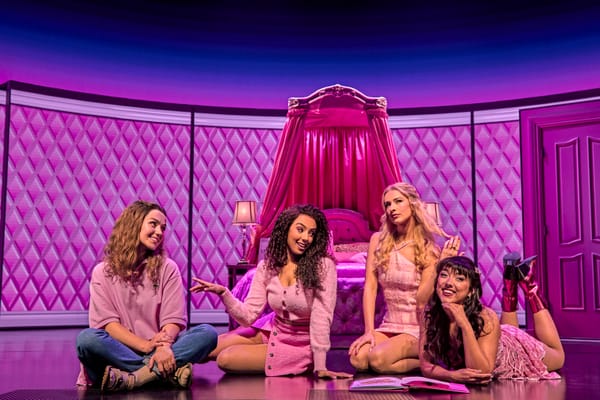Temp Check: Paralympic Gold Medallist Neil Fachie MBE
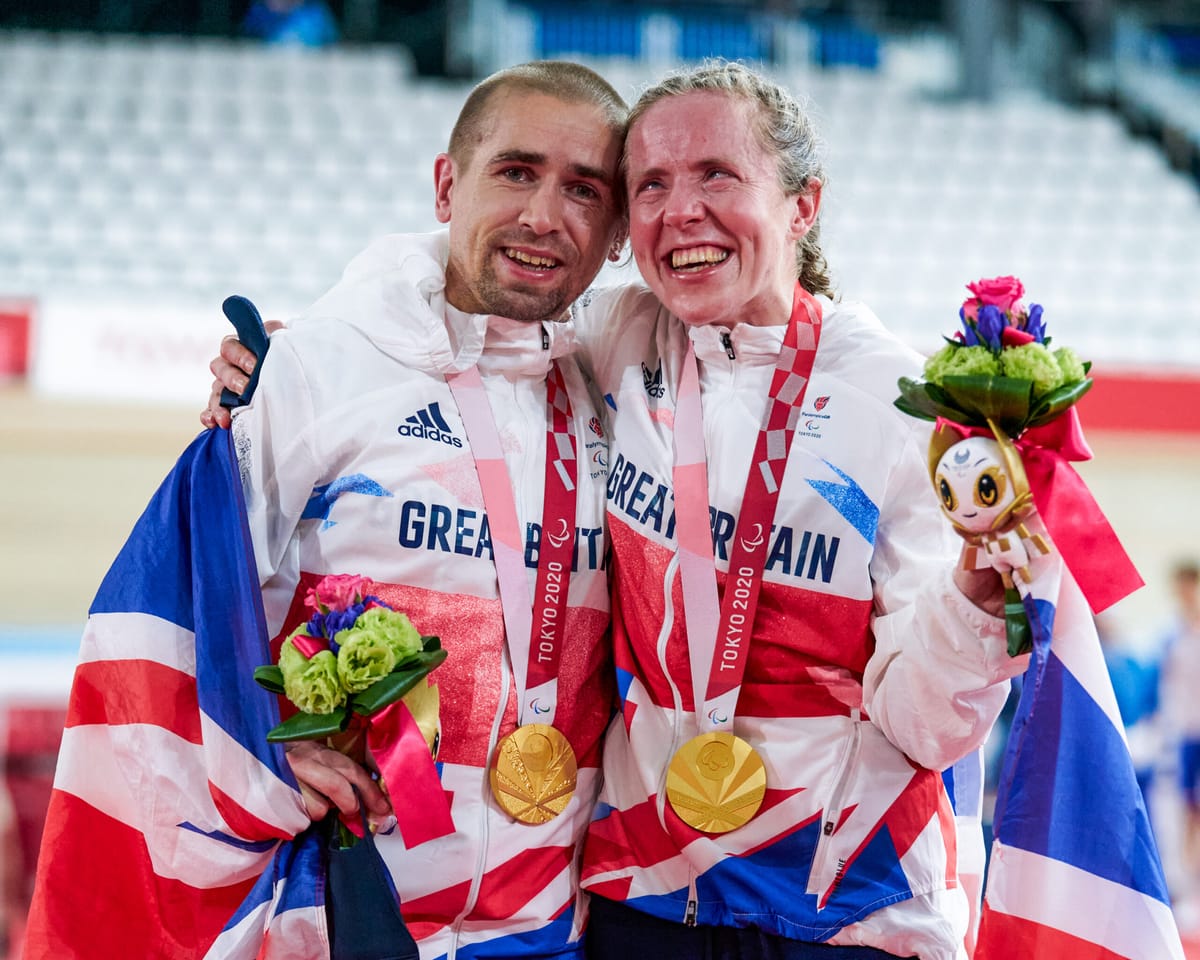
Neil Fachie was born and grew up in Aberdeen, a city still close to his heart. Despite the challenges he’s faced due to a condition that has deteriorated his eyesight, he’s become a British sporting icon. He’s an extremely determined personality who pushes himself to success, and of course we wanted to find out a little bit more about him.
In this latest Temp Check interview, we talk to Neil Fachie about his early life and education in Aberdeen. We cover his struggles to find his place in the sporting world. Then of course we chat about his success including his most recent gold medal at Tokyo 2020, breaking his own world record along the way. We also covered his family success as his wife Lora also won gold within a few minutes of him.
Settle in. This is one of our favourite Temp check interviews.
It’s been a big few days for you, winning yet another gold medal for Team GB, breaking your own world record. But personally…how are you feeling right now?
Two emotions really, firstly relief. The fact that something we’d planned for so long all came together is such a relief. My event is one ride, one opportunity and if one thing goes wrong it can all be for nothing. The race on Saturday was as close to perfect as I think I’ve ever been and that showed in the time we produced. Secondly I just feel pride, no only that Matt and I were able to win that title, but also that I got to share gold medal success with my wife Lora, who also won her event in a world record time.
Neil Fachie’s Childhood
I thought we’d start with your disability before we move onto your world beating abilities. You suffer from retinitis pigmentosa (RP), diagnosed at a young age. How did that diagnosis come about and how did it effect your childhood?
I was diagnosed at the age of 4 after running into a washing line pole in my Gran’s back garden on Christmas day. A common symptom of RP is to struggle in low level light and it had just been coming down dark outside. As both my Gran and Mum suffer from the condition, they knew the signs. As its a degenerative condition, it didn’t affect me too much in my early years, but as I got older, school became more of a challenge. I had to sit closer to the front and in the end had enlarged text for my exams. The poor night vision also meant I didn’t socialise with friends in an evening, so it definitely affected my social circle in my teenage years.
Was a career in sports inevitable for Neil Fachie?
I adored sport. I’d fallen in love with athletics and spent much of my time training at what was the Chris Anderson Stadium in Aberdeen. A career in sports never seemed likely though. In fact during my early teens I lost almost every race that I did. I was in it purely for the social side, as well as challenging myself to beat myself. I was constantly striving to improve, but sporting success seemed a long way off.

Would you say your education in Aberdeen helped or hindered your sporting ambitions? Did your school see your potential?
I didn’t get much in the way of help from my school. We’d often have to enter the Scottish Schools Championships off our own backs, but its the way it was. Studying at the University of Aberdeen did allow me to continue with Aberdeen Athletics Club, the extra time meaning I was essentially training as a full-time athlete. In the final year of my degree I became a member of the British Athletics development squad, things really took off from there.
The First Paralympics
At your first Paralympics in Beijing you were a sprinter, but after that changed to cycling. Tell us about that decision.
Following the Beijing Games I received a phone call from my manager at British Athletics. They told me that they didn’t think I had the potential to make it to London 2012 and were terminating my contract with immediate affect. At that stage my sporting dreams were done.
I desperately wanted to be part of a home Paralympic Games and so I decided to try every sport I could until I found one I might just be good enough at to have a chance of making it to the Games. As a life long fan of cycling, I decided that would be what I tried first. As it turns out, getting kicked off that athletics team was the best thing that ever happened to me. I obviously didn’t see it that way at the time.

What can powering on the back of a tandem bike pedalling at breakneck speeds tell us about trust? How important is your relationship with your tandem partner?
We hit speeds of 75 kph around the tight banking of the velodrome and so my life is very much in the hands of my pilot (the sighted rider on the front of the tandem). I very much have to trust in their bike handling skills, as well as trusting that they are also willing to dedicate their time towards achieving Paralympic success.
It takes a great deal of understanding between riders to make a fast tandem. Two great cyclists on a bike doesn’t equal a fast tandem. We have to be in sync, we have to compliment one another and we have to work well together. That relationship can take years to develop, if truth be told we are always learning more about one another.
London 2012 and Glasgow 2014
From a viewers point of view, being part of London 2012 and Glasgow 2014 looks like it would have been amazing. What was your experience of those games.
London 2012 was insane. The noise in the velodrome was like nothing I’ve ever experienced before or since. To win gold there was beyond my wildest dreams. Just taking part in those Games was all I’d ever wanted. For the following two weeks we were rockstars. We had to be accompanied by security when we went to events because everyone knew who we were. In that moment the Paralympic Games became mainstream.
To then follow that up with a home Games in Glasgow was very special. The crowd there were immense and pulling on the Scotland kit there was an extremely proud moment. My victory in the sprint in Glasgow is still my favourite ever win. It was an event we really shouldn’t have won, but somehow we managed to defeat the incredibly strong team from Australia.
I was devastated. As reigning world champion I was ready to race. The thought that I would have to keep going for another year, allowing my opposition time to catch me up, was gutting.
Neil Fachie
The build-up to Tokyo 2020
Let’s skip forward to early 2020 as you were training for the Tokyo Olympics, we started to hear about this virus in China…and then in Italy. A worrying time for us all, but how were you feeling about your build-up?
In late January/early February we won gold at the World Championships in Canada and all was looking on track for the Games. We had beaten our opposition by a good margin and I felt extremely confident going into the final phase of training before the Games. Although the virus was starting to spread, I didn’t ever consider things would turn out the way they did.
When the games were eventually postponed, were you relieved, frustrated or a bit of both?
I was devastated. As reigning world champion I was ready to race. The thought that I would have to keep going for another year, allowing my opposition time to catch me up, was gutting. It was at that point that I started to doubt whether I would even continue to the Games.
Do you think, in terms of your performance, you benefitted from that postponement?
After the initial disappointment I started to fall in love with cycling again. As we had to train from home, I’d had to change the way I train. It turns out that this ‘freshening up’ was just what I needed. I thrived during lockdown, and once we were able to get back on track, we went from strength to strength. We used the extra year we had to work on areas of the event we hadn’t had the chance to before. We just kept getting quicker and quicker. There is no way we would’ve gone as fast as we did in Tokyo, had the race taken place in 2020.
Life in Tokyo
You are still in Tokyo right now. Tell us a little about the experience of being part of the mid pandemic olympic village beyond your cycling. What have you been able to get up to?
Regulations were very tight in Japan. We stayed outside of the athlete’s village because the velodrome is based over 100km away. For that reason it didn’t quite feel like the usual Games. Every morning we had to spit into a tube for testing, to ensure we weren’t carrying the coronavirus. Sport is often far from glamorous! The day following my race we headed to a hotel near the airport, ready to fly home. We were told that if we left the hotel, we could be arrested. Fortunately the view from our hotel was stunning, but its not quite how I wanted to see Tokyo.

Your wife Lora won a gold medal within 15 minutes of you, a truly fantastic family achievement. How did that feel?
The most incredible day. While warming up for my race I watched Lora break the world record in her qualifying ride. I knew the pressure was then on me. Matt and I then won gold, breaking the world record, so the pressure switched back to Lora and her pilot Corrine. In their gold medal ride they won a tough battle against the Irish bike, taking Paralympic gold. I didn’t see Lora for the next 30 minutes or so as I was taken away for my podium and Lora hers. When we finally came together I gave her a huge hug and she said to me, “we did it”. The tears were flowing at that point.
The Future for Neil Fachie
That top spot on the podium must be getting quite familiar, and we’re now only three years away from Paris ’24. Have you made the decision whether or not you’ll aim to compete?
I have every intention of being there. Next summer the Commonwealth Games take place in Birmingham, an event I plan to be part of. In 2023 the cycling world champs take place in Glasgow. This will be the first time all cycling disciplines will come together to create a cycling Games of sort, so I definitely want to be part of that. Then at that stage we are just one year away from Paris. I might be 40 at that stage, but I’d love to be there to try and defend my title.
Thank you so much to the amazing Neil Fachie taking the time to answer our questions despite having an incredibly busy schedule following Tokyo. He’s a truly inspirational character. This is a story we can all take motivation from no matter what path we are on.
Find out more
Neil Fachie’s book Earn Your Stripes is a great read. You can learn more about it on his website. Neil hosts a podcast The 1% Club with fellow presenter, John Mellis. You can also make a connection with Neil on Twitter where he’s very active.
If you enjoyed this Temp Check, why not check out our interview with Aberdeen radio presenter Lauren Mitchell. It’s a great follow-up read.
About POST
Kevin Mitchell and Chris Sansbury founded POST. This was from a desire to cut through the noise to share the great things that happen in Aberdeen. They focus on community, culture and also the interesting people of the city. The local artists, businesses and charities; photographers, musicians and entertainers. These are the people that make a positive impact on our city every day. So they use video, audio, writing and social media to amplify the voices in our community. And to ultimately give a platform to Aberdeen folk to engage and tell their own stories.
Recent work includes coverage of Spectra 2023, interviews with We Are Here Scotland founder Ica Headlam; Paralympic gold medalist, Neil Fachie; Aberdeen rapper Chef and his push for success; an article about the pedestrianisation of Union Street; coverage of Nuart Aberdeen and TEDx Aberdeen, as well as coverage of the campaign to Save the Belmont.
We are independent and entirely self funded. We just about cover our costs, but if you would like to help support our work, you could buy us a coffee.


